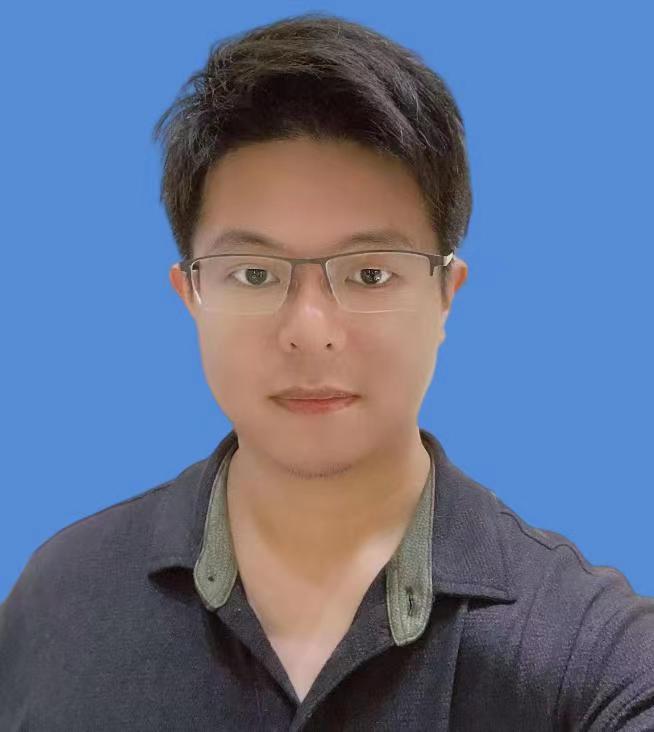A Fellow of the IEEE (class of 2008, for "contributions to scheduling techniques in parallel and distributed computing systems"), Dr. Ahmad received a BSc degree in Electrical Engineering from the University of Engineering and Technology, Lahore, Pakistan, in 1985, and an MS degree in Computer Engineering and a PhD degree in Computer Science from Syracuse University, New York, U.S.A., in 1987 and 1992, respectively. Prior to that, for his secondary school education he studied at Lahore's Govenment College, the prestigious school that has been attended by the likes of Nobel Laureates, Dr. Abdus Salam and Dr. Har Gobind Khorana, the great Urdu Poet Dr. Sir. Muhammad Iqbal, and the star cricket player Majid Khan.
His research has been in the broader areas of smart systems, parallel and distributed computing systems and their applications, optimization algorithms, multimedia systems, video compression, assistive technologies, robotics, and energy-aware sustainable computing. His research work in these areas is published nearly 275 articles in books, and peer-reviewed journals and conference proceedings. in refereed journals and conferences including His research work in wider range of topics is widely cited with over 22,000 citations to his papers. One of his papers was ranked 4th among the top ten All-Time Most Cited Papers published in the IEEE Transactions on Parallel and Distributed Systems. His well-known work also includes papers on parallel program scheduling, survey on task graph scheduling, energy-ware performance optimization, survey on video transcoding, techniques for parallelizing scheduling and video compression, techniques for rate control and motion estimation in video coding, and survey on energy-aware task scheduling and temperature-aware task scheduling on parallel and distributed computing systems. He was one of the earliest researchers who built a software-based video phone (see picture).
He has received numerous research awards including elevation to the IEEE Fellow status and best paper awards at Supercomputing '90 conference (New York), Supercomputing `91 conference (Albuquerque, New Mexico), and 2001 International Conference on Parallel Processing (Spain). He also received the 2007 Best Paper Award for IEEE Transactions on Circuits and Systems for Video Technology, awarded at the 2007 ISCAS conference in New Orleans, IEEE Service Appreciation Award, and 2008 Outstanding Area Editor Award from the IEEE Transactions on Circuits and Systems for Video Technology.
He joined the Computer Science and Engineering (CSE) Department of the University of Texas at Arlington in 2002 as full professor. He leads the Center for Advanced Computing Systems, which is committed to advancing the frontiers of computing by inventing cutting-edge systems, software, and applications. Prior to joining UT Arlington, he was an associate professor in the Computer Science Department at Hong Kong University of Science and Technology (HKUST). At HKUST, he also directed the Multimedia Technology Research Center, an officially recognized research center that he conceived and built from scratch in collaboration with Prof. Ming Liou. The center received funding from various agencies of the Government of the Hong Kong Special Administrative Region of China as well as local and international industries. With more than 70 industrial partners and 40 personnel including faculty members, postdoctoral fellows, full-time staff, and graduate students, the center engaged in numerous R& D projects with academia and industry from Hong Kong, China, Europe, and the U.S. The center commercialized several of its technologies to its industrial partners world wide. See the group picture. Prof. Ahmad holds honorary professor positions at the University of Electronic Science and Technology, Chengdu, China, (see pic) and Amity University (pic), Dubai, U.A.E, and is a senior visiting scientist at the Institute of Computing Technology (Chinese Academy of Sciences) in Beijing, China, and the U.S. Airforce Research Lab, Rome, New York. He has also taught courses on supercomputing and parallel programming techniques to NASA engineers and scientists at the Johnson Space Center, Houston, Texas. He is a certified ABET evaluator.
Dr. Ahmad's current research is funded by the U.S. Department of Justice (DOJ), National Science Foundation (NSF), Department of Education (GAANN Project), Air Force Research Lab, Semiconductor Research Corporation (SRC), Adobe Inc., Texas Instruments, and Sun Microsystems. He is leading several efforts in sustainable computing and computing for sustainability. This includes launching of a new journal with Elsevier, Sustainable Computing: Informatics and Systems (SUSCOM)) of which he is the founding editor-in-chief, and launching of the International Green Computing Conference. Currently, he is the general chair of ICDIS.. He has served on the program committees of over 135 international conferences (including 29 in leading roles). He served on the editorial board of IEEE Transactions on Circuits and Systems for Video Technology, IEEE Concurrency, IEEE Transactions on Multimedia, IEEE Distributed Systems Online, Sustainable Computing: Informatics and Systems (SUSCOM)), Journal of Parallel and Distributed Computing, IEEE Transactions on Parallel and Distributed Computing Systems. He was also a guest editor of a Special Issue of IEEE Transactions on Parallel and Distributed Systems -- Power-Aware Parallel and Distributed Systems (PAPADS) , and Special Issue of IEEE Transactions on Circuits and Systems for Video Technology- Video surveillance.
































Welcome to the 2nd Global Research Conference and Expo on Robotics & Artificial Intelligence (GRCRAI2025)!
We are excited to invite you to London, UK, from November 10-12, 2025, for a groundbreaking event that will bring together leading experts, researchers, and industry professionals to explore the latest innovations in robotics and AI. At GRCRAI2025, you will have the opportunity to engage with cutting-edge research and learn about the real-world applications of AI and robotics that are transforming industries globally.
The conference will highlight exciting advancements such as OpenAI's new "Tasks" feature, which enhances AI-driven virtual assistants, as well as the use of AI in filmmaking and disaster recovery. You will also discover the future of AI in emotional support robots and the groundbreaking capabilities of AI hardware like Nvidia's GeForce RTX 50 series GPUs.
Through expert sessions, hands-on demonstrations, and vibrant networking opportunities, this conference will be an immersive experience, offering a chance to collaborate and shape the future of robotics and artificial intelligence.
We look forward to welcoming you to this unparalleled event.